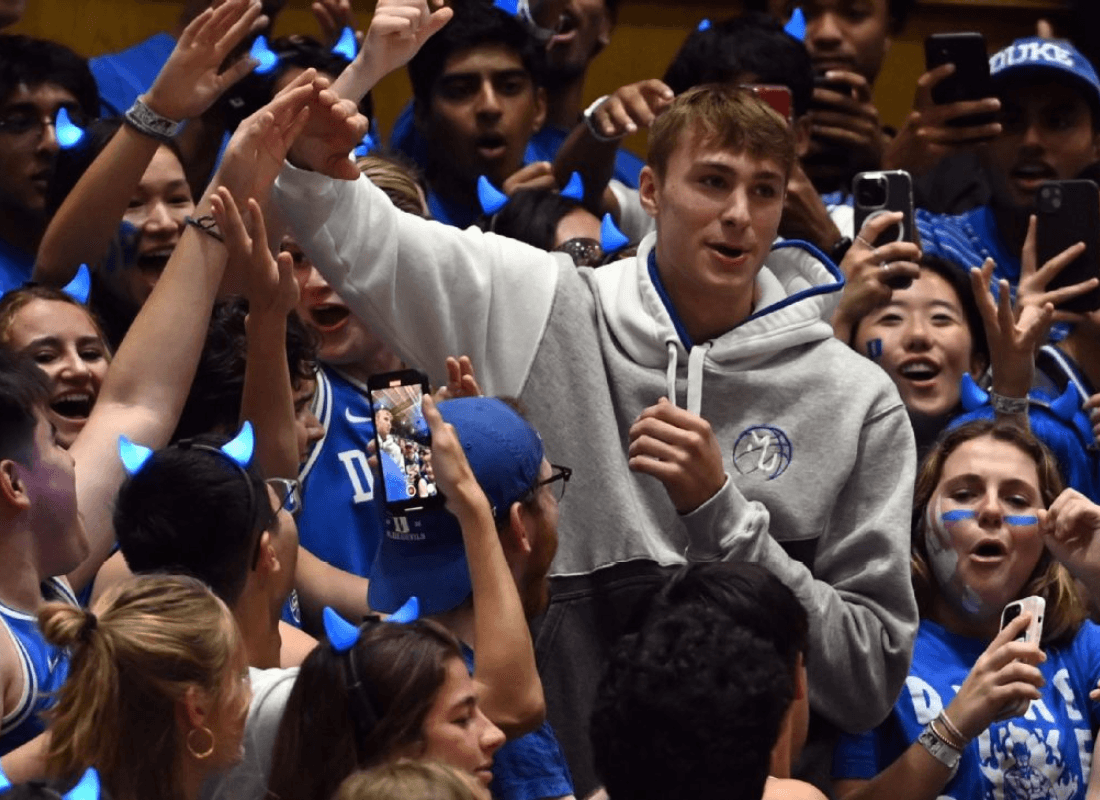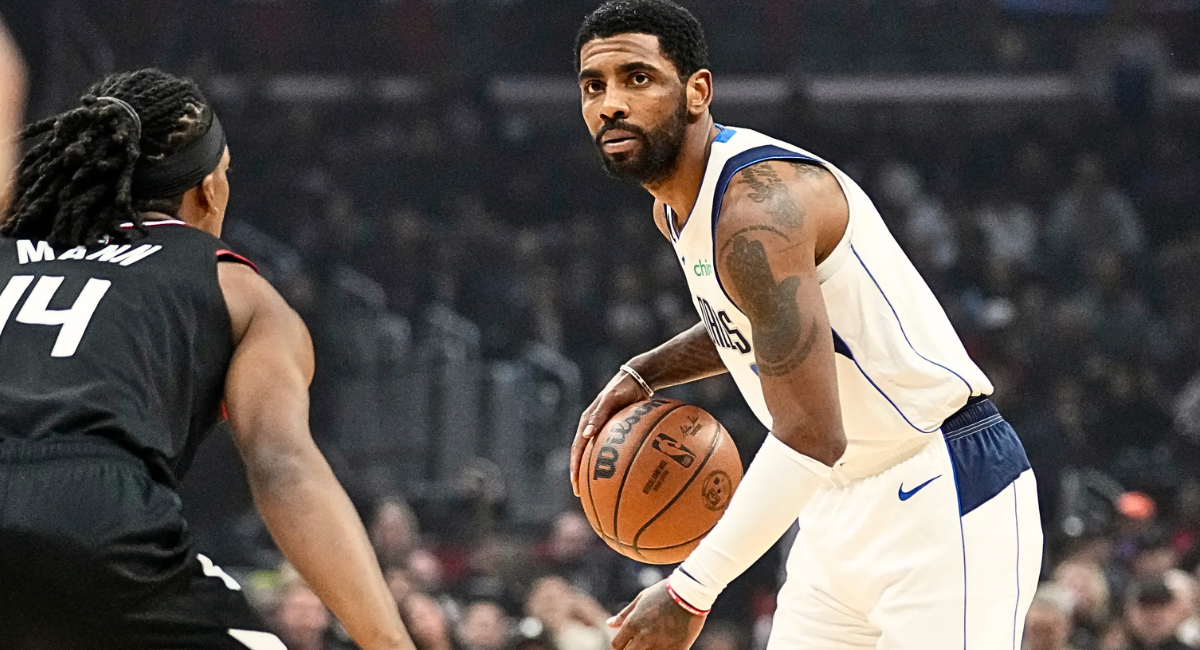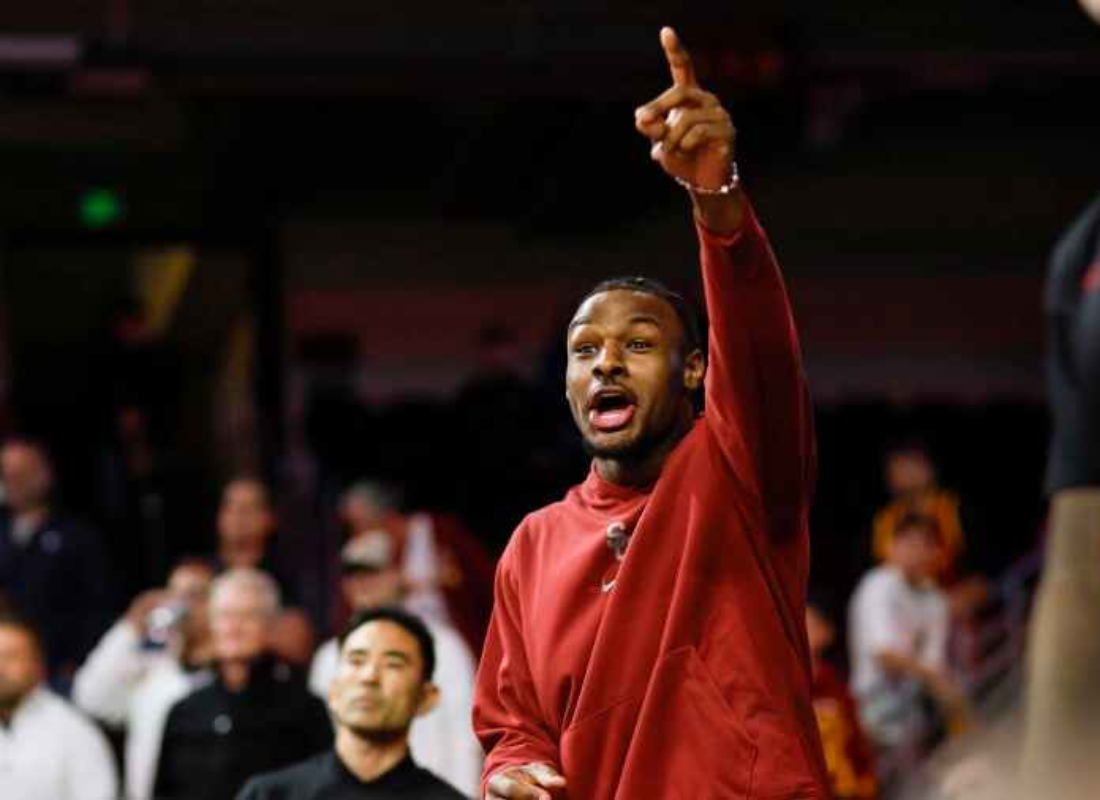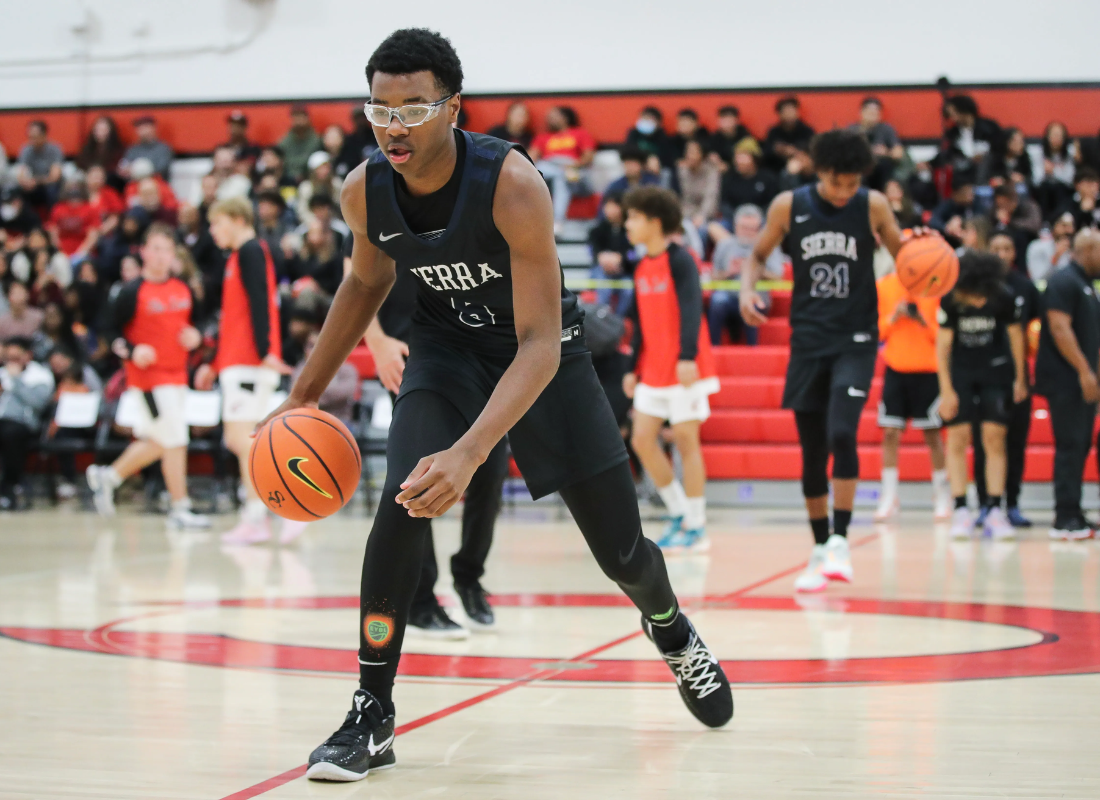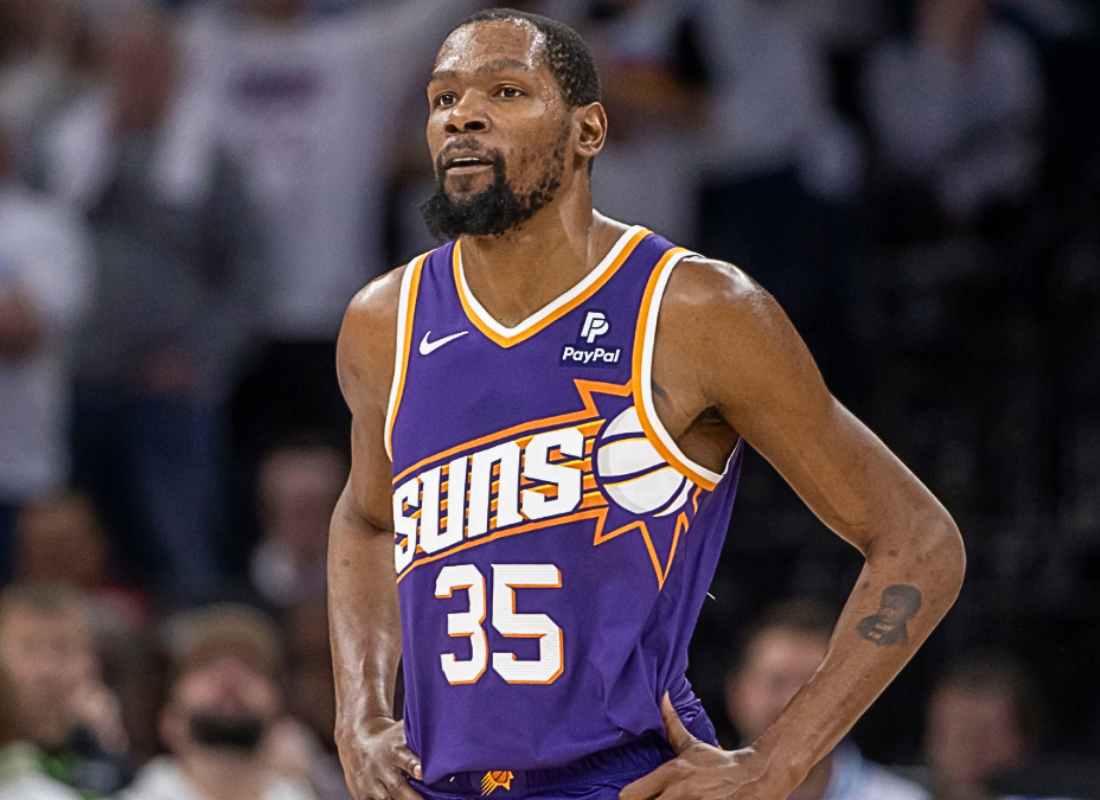On Monday night, UConn’s securing of their second consecutive national championship marked a historic moment, echoing the back-to-back victories last seen with Florida in 2006 and 2007. Fresh off this accomplishment, questions arise: will the Huskies aim for a three-peat next season, or will challenges emerge to challenge Dan Hurley’s squad? As attention shifts from the championship game to ongoing storylines like the transfer portal and coaching changes, it’s natural to turn our focus to the 2024-25 season.
The early top 25 rankings vary widely across different platforms, prompting the need to establish some guidelines for the sole Way-Too-Early Top 25 analysis you’ll require. Departures are categorized as any player ranked within ESPN’s top 60 for the 2024 NBA draft, with adjustments possible if they opt to stay in college.
Conversely, players not within the top 60 are assumed to be returning unless they’ve confirmed plans to turn professional. Notable players impacted by this include UConn’s Alex Karaban, Creighton’s Ryan Kalkbrenner, BYU’s Jaxson Robinson, Baylor’s Jalen Bridges, and several members of Kentucky’s roster.
This offseason marks the final repercussions of the COVID year, which granted players an additional year of eligibility due to the disruptions of the 2020-21 season. Rather than speculate on the decisions of each senior player, we’ll project them as departures unless they’ve officially announced their intention to return.
Now that we’ve clarified these points, let’s delve into the analysis. With just seven months until the commencement of the 2024-25 season, anticipation is mounting for what promises to be another captivating chapter in NCAA basketball.
Duke’s aspirations for a national championship in the previous season were met with struggles in maintaining consistency, leading to their elimination in the Elite Eight. Looking ahead to the upcoming season, Jon Scheyer’s leadership brings optimism as the team showcases two standout NBA prospects:
top-ranked recruit Cooper Flagg and Khaman Maluach, anticipated to be a top-five selection in the NBA draft. However, potential challenges loom in the point guard position if Jeremy Roach opts against using his fifth-year option.
Projected starting lineup:
- Tyrese Proctor (averaging 10.5 points per game)
- Caleb Foster (averaging 7.7 points per game)
- Cooper Flagg (ranked first in ESPN 100)
- Mark Mitchell (averaging 11.6 points per game)
- Khaman Maluach (five-star recruit)
The Zags have the potential to keep nearly all of their players from the previous season, with the exception of Anton Watson, following their impressive performance ranking among the top 10 or 15 teams in the final two months of the 2023-24 season.
Ryan Nembhard and Graham Ike have emerged as one of the country’s most formidable inside-outside partnerships. Additionally, Mark Few has strengthened the team’s perimeter offense by adding Michael Ajayi, a transfer from Pepperdine, and welcoming back Steele Venters, who missed the previous season due to injury after transferring from Eastern Washington.
Projected starting lineup:
- Ryan Nembhard (scoring an average of 12.6 points per game)
- Nolan Hickman (scoring an average of 14.0 points per game)
- Michael Ajayi (averaged 17.2 points per game at Pepperdine)
- Ben Gregg (scoring an average of 9.0 points per game)
- Graham Ike (scoring an average of 16.5 points per game)
Despite starting the 2023-24 season as the top-ranked team, Bill Self faced one of his most disappointing seasons in Lawrence. However, there’s hope for a turnaround in the upcoming season, particularly if Hunter Dickinson opts to return, potentially propelling the Jayhawks back into contention for the top spot.
Even if Dickinson doesn’t return, Dajuan Harris Jr. and K.J. Adams Jr. bring valuable experience, and the additions of Zeke Mayo from South Dakota State and Riley Kugel from Florida should bolster scoring from the wing.
Projected starting lineup:
- Dajuan Harris Jr. (averaging 8.5 points per game)
- Zeke Mayo (averaging 18.8 points per game at South Dakota State)
- Riley Kugel (averaging 9.2 points per game at Florida)
- K.J. Adams Jr. (averaging 12.6 points per game)
- Flory Bidunga (ranked No. 9 in ESPN 100)
Could Dan Hurley and the Huskies pull off a three-peat? While it’s not entirely out of reach, it’s premature to set such high expectations for them just yet. The main uncertainty stems from the potential departure of all five starters and sixth man Hassan Diarra: Tristen Newton, Cam Spencer, and Diarra are seniors (with Diarra having the option for another year of eligibility), and Donovan Clingan, Stephon Castle, and Alex Karaban are expected to be drafted in June.
Projected starting lineup:
- Ahmad Nowell (ranked No. 31 in ESPN 100)
- Solomon Ball (averaging 3.5 points per game)
- Jayden Ross (averaging 0.7 points per game)
- Jaylin Stewart (averaging 2.6 points per game)
- Samson Johnson (averaging 5.4 points per game)
T.J. Otzelberger continued his successful tenure in Ames with another remarkable season, capturing the Big 12 tournament championship and securing a 2-seed in the NCAA tournament. The talented backcourt combination of Tamin Lipsey and Keshon Gilbert remains unchanged, with hopes high for Milan Momcilovic to enhance his contributions.
Furthermore, Iowa State has bolstered its roster with transfers Nate Heise from Northern Iowa and Dishon Jackson from Charlotte. If Curtis Jones decides to return for his final year, Iowa State’s outlook will be even more promising.
Projected starting lineup:
- Tamin Lipsey (averaging 12.4 points per game)
- Keshon Gilbert (averaging 13.7 points per game)
- Nate Heise (averaging 13.5 points per game at Northern Iowa)
- Milan Momcilovic (averaging 10.9 points per game)
- Dishon Jackson (averaging 11.4 points per game at Charlotte)
The beginning of the post-Zach Edey era at Purdue signals a new phase for the team, but there’s little reason to expect a significant drop in their national standing under the guidance of Matt Painter. Purdue still possesses one of the top backcourts in the country with Braden Smith and Fletcher Loyer, and Trey Kaufman-Renn is ready to take on a more prominent role in the frontcourt.
The main questions revolve around whether Smith and Loyer can transition into primary scoring roles from their previous supporting roles, and which bench player or incoming freshman will make a breakthrough. A strong candidate for this role is Camden Heide.
Projected starting lineup:
- Braden Smith (scoring an average of 12.2 points per game)
- Fletcher Loyer (scoring an average of 10.6 points per game)
- Camden Heide (scoring an average of 3.4 points per game)
- Trey Kaufman-Renn (scoring an average of 6.4 points per game)
- Caleb Furst (scoring an average of 2.2 points per game)
One major factor influencing this ranking is the trust in Kelvin Sampson, who has steered the Cougars to the 2024-25 NCAA tournament’s second weekend for five consecutive seasons. However, the news of J’Wan Roberts’ return on Monday evening provided an additional boost.
There’s also the potential for L.J. Cryer to opt for another year at Houston due to COVID impacts, although he hasn’t made a definite decision yet. Sampson also faces the task of finding a suitable replacement for Jamal Shead, an All-American and arguably the nation’s premier perimeter defender, at the point guard position.
Projected starting lineup:
- Emanuel Sharp (averaging 12.6 points per game)
- Terrance Arceneaux (averaging 5.5 points per game)
- Chase McCarty (ranked No. 98 in ESPN 100)
- J’Wan Roberts (averaging 9.5 points per game)
- Ja’Vier Francis (averaging 6.0 points per game)
Arizona is currently facing uncertainty with its roster. While Caleb Love, Pelle Larsson, and Oumar Ballo still have one more year of eligibility, it’s uncertain whether they will choose to return to Tucson.
However, under the guidance of Tommy Lloyd, the Wildcats are poised to possess one of the most formidable perimeter groups in the country, consisting of Kylan Boswell, Jaden Bradley, KJ Lewis, Joson Sanon, and Jamari Phillips. In the frontcourt, Motiejus Krivas will need to demonstrate improvement, and Lloyd is expected to pursue a more seasoned player to complement him.
Projected starting lineup:
- Kylan Boswell (averaging 9.6 points per game)
- Jaden Bradley (averaging 7.0 points per game)
- KJ Lewis (averaging 6.1 points per game)
- Carter Bryant (ranked No. 20 in ESPN 100)
- Motiejus Krivas (averaging 5.4 points per game)
With Dalton Knecht’s departure, Rick Barnes sees off his most formidable offense of recent times. However, if Knoxville maintains its commitment to a faster-paced, three-point-oriented offensive approach, there’s cause for optimism.
Zakai Zeigler shines as one of the top point guards nationally, and Jonas Aidoo has displayed significant improvement during his junior year. The Volunteers will need a wing player to step up as a scoring threat, and a potential surprise candidate for that role is sophomore-to-be Cameron Carr.
Projected starting lineup:
- Zakai Zeigler (scoring an average of 11.8 points per game)
- Jordan Gainey (scoring an average of 6.8 points per game)
- Jahmai Mashack (scoring an average of 4.5 points per game)
- Jonas Aidoo (scoring an average of 11.4 points per game)
- Tobe Awaka (scoring an average of 5.1 points per game)
Scott Drew is set to lead an intriguing lineup into the upcoming 2024-25 season, and there’s even the possibility of Jalen Bridges returning, although he’s likely to be drafted in the second round. Jayden Nunn and Langston Love consistently contribute double-digit points, while Robert Wright III and V.J.
Edgecombe are poised to make waves as top freshmen nationally. The team is expected to heavily rely on perimeter shooting, but they’ll also need to establish a strong presence inside the paint.
Projected starting lineup:
- Robert Wright III (ranked No. 25 in ESPN 100)
- Jayden Nunn (averaging 10.5 points per game)
- V.J. Edgecombe (ranked No. 4 in ESPN 100)
- Langston Love (averaging 11.0 points per game)
- Josh Ojianwuna (averaging 4.9 points per game)
Tyler Kolek and Oso Ighodaro are likely to have completed their time at Marquette, but Shaka Smart still has three other starters returning: standout guard Kam Jones, David Joplin, and Stevie Mitchell.
Additionally, key rotational players like Chase Ross, Ben Gold, and a potentially recovered Sean Jones will be back. Despite the departure of Kolek and Ighodaro, the Golden Eagles have been successful with a total of 58 wins over two seasons and consecutive 2-seed appearances in the NCAA tournament, indicating that they are not expected to decline rapidly.
Projected starting lineup:
- Sean Jones (averaging 5.8 points per game)
- Kam Jones (averaging 17.2 points per game)
- Stevie Mitchell (averaging 8.8 points per game)
- David Joplin (averaging 10.8 points per game)
- Ben Gold (averaging 5.0 points per game)
We expect Nate Oats to significantly enhance the team through the transfer portal, especially since starters Mark Sears, Grant Nelson, and Nick Pringle still have an extra year of eligibility due to COVID. Consequently, we anticipate considerable changes in this ranking over the next few weeks.
Currently, Tuscaloosa possesses notable talent. Sam Walters and Jarin Stevenson have displayed potential in the frontcourt, while Rylan Griffen stands out as a proficient sharpshooter. Furthermore, a top-five recruiting class is en route to the program.
Projected starting lineup:
- Davin Cosby Jr. (averaging 3.6 points per game)
- Rylan Griffen (averaging 11.3 points per game)
- Derrion Reid (ranked No. 8 in ESPN 100)
- Sam Walters (averaging 5.6 points per game)
- Jarin Stevenson (averaging 5.4 points per game)
Florida took advantage of the transfer portal last spring, and it could once again benefit from acquiring more reinforcements on the wing. Nonetheless, they have a standout guard in Walter Clayton Jr., who is considered one of the nation’s top scorers and a potential All-America candidate, accompanied by Will Richard, who consistently scores in double figures.
The frontcourt shows promise with players like Alex Condon, Thomas Haugh, and hopefully, a healthy Micah Handlogten. However, the addition of one or two more perimeter players would be significant for the team’s success.
Projected starting lineup:
- Walter Clayton Jr. (scoring an average of 17.6 points per game)
- Will Richard (scoring an average of 11.4 points per game)
- Denzel Aberdeen (scoring an average of 3.3 points per game)
- Thomas Haugh (scoring an average of 3.9 points per game)
- Alex Condon (scoring an average of 7.7 points per game)
Under Mark Pope’s guidance, BYU had an impressive start in their debut Big 12 season, boasting a 12-1 record and ultimately clinching a 6-seed in the NCAA tournament. Although there’s uncertainty regarding the potential return of Jaxson Robinson, whose NBA draft ranking places him in ESPN’s top 60, Pope remains confident in the team’s ability to perform well in March.
The core players, including regular starters Dallin Hall, Trevin Knell, and Aly Khalifa, alongside Richie Saunders and Fousseyni Traore, form a dependable foundation. Furthermore, former ESPN 100 recruit Collin Chandler will join the team after completing his two-year mission.
Projected starting lineup:
- Dallin Hall (averaging 9.0 points per game)
- Trevin Knell (averaging 10.6 points per game)
- Richie Saunders (averaging 9.6 points per game)
- Fousseyni Traore (averaging 10.9 points per game)
- Aly Khalifa (averaging 5.7 points per game)
The Tar Heels’ ranking for the upcoming 2024-25 season depends greatly on the decisions of RJ Davis and Harrison Ingram. While Davis is not expected to be chosen in the draft and still has a year of eligibility due to COVID, Ingram is being discussed as a potential early second-round pick. Should these two players not return, Hubert Davis will heavily lean on the returning guards Elliot Cadeau and Seth Trimble, alongside incoming five-star recruits Ian Jackson and Drake Powell.
Projected starting lineup:
- Elliot Cadeau (averaging 7.3 points per game)
- Seth Trimble (averaging 5.2 points per game)
- Ian Jackson (ranked No. 16 in ESPN 100)
- Drake Powell (ranked No. 13 in ESPN 100)
- Jalen Washington (averaging 3.9 points per game)
The loss of Joshua Jefferson to the transfer portal presents a challenge, but there’s still hope for Randy Bennett’s team to secure a third consecutive WCC regular-season championship if he can find suitable frontcourt reinforcements through the portal.
The combination of Augustas Marciulionis and Aidan Mahaney has the potential to lead the team to numerous victories, and there’s anticipation for former four-star recruit Jordan Ross to excel at the point guard position. Furthermore, the return of senior center Mitchell Saxen, who has proven himself as one of the top big men in the WCC over the past two seasons, adds strength to the lineup.
Projected starting lineup:
- Jordan Ross (averaging 1.3 points per game)
- Augustas Marciulionis (averaging 12.4 points per game)
- Aidan Mahaney (averaging 13.9 points per game)
- Luke Barrett (averaging 5.5 points per game)
- Mitchell Saxen (averaging 11.8 points per game)
In a bid to bounce back from a lackluster season, the Miami basketball program has been actively engaged in the transfer portal, successfully securing the services of Lynn Kidd from Virginia Tech and Brandon Johnson from East Carolina, bolstering their frontcourt.
Furthermore, there is considerable anticipation surrounding the potential returns of Nijel Pack, Wooga Poplar, and Matthew Cleveland. However, the most notable excitement revolves around the arrival of Jalil Bethea, a highly touted recruit who stands as the program’s highest-ranked prospect in nearly four decades. Bethea’s arrival is expected to inject dynamism into the team.
Projected starting lineup:
- Nijel Pack (averaging 13.3 points per game)
- Jalil Bethea (ranked No. 6 in ESPN 100)
- Wooga Poplar (averaging 13.1 points per game)
- Matthew Cleveland (averaging 13.7 points per game)
- Lynn Kidd (averaging 13.2 points per game at Virginia Tech)
Is Johni Broome considering another season in college basketball? Some years ago, that notion would have been dismissed outright. However, given his slim chances of being drafted, it’s now a possibility. Yet, even if he departs, Bruce Pearl’s team is well-equipped in the backcourt.
Returning players Aden Holloway, Denver Jones, and Chad Baker-Mazara offer depth, and the addition of highly touted recruit Tahaad Pettiford is anticipated to make an impact. Nevertheless, the Tigers have a shortage in the frontcourt, with limited alternatives beyond Chaney Johnson.
Projected starting lineup:
- Aden Holloway (averaging 7.3 points per game)
- Tahaad Pettiford (ranked No. 27 in ESPN 100)
- Denver Jones (averaging 9.1 points per game)
- Chad Baker-Mazara (averaging 10.0 points per game)
- Chaney Johnson (averaging 4.7 points per game)
Mick Cronin’s recent unimpressive season, the worst in 15 years, is not likely to repeat itself in the 2024-25 season. The Bruins have already been active in the transfer portal, securing the services of versatile two-way wing Kobe Johnson from USC and scoring point guard Skyy Clark from Louisville.
Additionally, the return of starters Dylan Andrews, Sebastian Mack, and Lazar Stefanovic bolsters the team’s depth. However, there are uncertainties surrounding the team’s interior players: Will Adem Bona opt for the NBA draft? Will Aday Mara and/or Berke Buyuktuncel return, and if they do, will they demonstrate improvement?
Projected starting lineup:
- Dylan Andrews (averaging 12.9 points per game)
- Sebastian Mack (averaging 12.1 points per game)
- Kobe Johnson (averaging 10.9 points per game at USC)
- Lazar Stefanovic (averaging 11.5 points per game)
- Berke Buyuktuncel (averaging 4.5 points per game)
Another team that didn’t meet preseason expectations. However, Kevin Willard is preparing to introduce a revamped starting lineup in November. Julian Reese has confirmed his return, and there are high expectations for former top-50 recruit DeShawn Harris-Smith to make strides.
Furthermore, the team will see new additions. Willard has already secured transfer guards Ja’Kobi Gillespie from Belmont and Rodney Rice from Virginia Tech. Additionally, they are bringing in top-10 recruit Derik Queen, who could have a significant impact on the team’s offense.
Projected starting lineup:
- Ja’Kobi Gillespie (scoring an average of 17.2 points per game at Belmont)
- Rodney Rice (scoring an average of 7.4 points per game at Virginia Tech)
- DeShawn Harris-Smith (scoring an average of 7.3 points per game)
- Julian Reese (scoring an average of 13.7 points per game)
- Derik Queen (ranked No. 10 in ESPN 100)
Rutgers is set to showcase two of ESPN’s top six prospects in their early 2025 NBA mock draft: Airious “Ace” Bailey and Dylan Harper, who hold the second and third positions, respectively, in the ESPN 100 rankings. Both are anticipated to make significant contributions to the team’s transformation next season.
However, Steve Pikiell will need to complement their talents with experienced players. The return of Jeremiah Williams is a positive development, and Pikiell has already secured transfers in Tyson Acuff from Eastern Michigan and Zach Martini from Princeton.
Projected starting lineup:
- Dylan Harper (Ranked No. 3 in ESPN 100)
- Jeremiah Williams (averaging 12.2 points per game)
- Tyson Acuff (averaging 21.7 points per game at Eastern Michigan)
- Ace Bailey (Ranked No. 2 in ESPN 100)
- Emmanuel Ogbole (averaging 2.1 points per game)
DaRon Holmes II might decide to leave, given his impressive performance over two seasons and his projection as a second-round pick. However, the team still has sufficient talent to potentially re-enter the top-25 discussion next season.
Starters Nate Santos, Enoch Cheeks, and Javon Bennett are all expected to return, and sixth man Koby Brea, recognized as one of the top shooters in the country, is also staying. If Holmes does leave, Anthony Grant will need to find a big man from the transfer portal, although reserves Isaac Jack and Petras Padegimas will remain on the team.
Projected starting lineup:
- Javon Bennett (averaging 8.4 points per game)
- Enoch Cheeks (averaging 8.1 points per game)
- Koby Brea (averaging 11.1 points per game)
- Nate Santos (averaging 11.7 points per game)
- Isaac Jack (averaging 3.1 points per game)
At this juncture, the situation is quite uncertain. Kentucky currently lacks a coach following John Calipari’s departure to Arkansas, and there are concerns that their highly-touted recruiting class might fall apart.
Nevertheless, as of April 8, the sole recruit to decommit is Karter Knox, and Kentucky is still expected to attract one of the nation’s top coaches to replace Calipari. Therefore, it’s premature to disregard the Wildcats for the upcoming 2024-25 season. Anticipate significant fluctuations in Kentucky’s ranking during this offseason.
Projected starting lineup:
- Boogie Fland (Ranked No. 15 in ESPN 100)
- Travis Perry (Ranked No. 71 in ESPN 100)
- Billy Richmond (Ranked No. 39 in ESPN 100)
- Jayden Quaintance (Ranked No. 14 in ESPN 100)
- Zvonimir Ivisic (averaging 5.5 points per game)
The loss of AJ Storr deals a significant blow to the Badgers, given his offensive impact, but Greg Gard will still have a solid nucleus returning for the 2024-25 season, featuring players like Max Klesmit, Chucky Hepburn, Steven Crowl, and John Blackwell.
Despite Wisconsin showcasing its most potent offense since Bo Ryan’s era, defensive struggles plagued the team last season. Gard will need to find better balance if the Badgers aim to advance past the tournament’s opening weekend for the first time since 2017.
Projected starting lineup:
- Chucky Hepburn (averaging 9.2 points per game)
- John Blackwell (averaging 8.0 points per game)
- Max Klesmit (averaging 9.9 points per game)
- Carter Gilmore (averaging 1.8 points per game)
- Steven Crowl (averaging 11.2 points per game)
Cincinnati has amassed 45 victories over the last two seasons under Wes Miller’s leadership but has yet to secure an 2024-25 NCAA tournament berth during his three-year tenure. However, there is hope for change, as the Bearcats are expected to retain key players like Dan Skillings Jr., Day Day Thomas, Simas Lukosius, and Jizzle James.
Moreover, Aziz Bandaogo still has one more year of eligibility due to COVID, addressing the team’s need for a genuine big man. Additionally, the recruitment of ESPN 100 prospects Tyler Betsey and Tyler McKinley will bolster the team’s depth.
Projected starting lineup:
- Day Day Thomas (averaging 10.4 points per game)
- Jizzle James (averaging 8.8 points per game)
- Dan Skillings Jr. (averaging 12.9 points per game)
- Simas Lukosius (averaging 11.8 points per game)
- Josh Reed (averaging 2.0 points per game)
The early Top 25 ranking for the 2024-25 NCAA men’s basketball season showcases a mix of perennial contenders, rising stars, and teams undergoing transitions. As teams prepare for the upcoming 2024-25 season, anticipation runs high for captivating matchups and thrilling storylines that will unfold on the road to March Madness.
ALSO READ:
- Jack Gohlke: March Madness Sharpshooter
- NCAA model unveils surprising 2024 March Madness picks
- Vanderbilt Starts as Lakers Bench Russell

